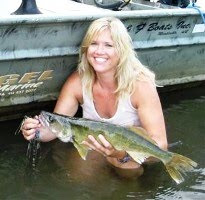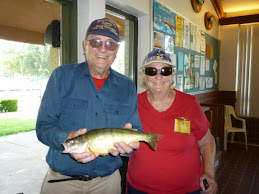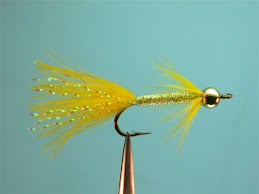
Eastern Mountain Lion, US Fish and Wildlife Service photo
The Pennsylvania Game Commission is called about hundreds of mountain lion and hybrid wolf sightings every year, but few lead to an animal’s capture.
“The animal’s there and then it isn’t,” said agency spokesman Gerry Feaser. “A lot are cases of mistaken identify, or a hoax, like that (alleged) cougar attack in Lancaster County last week.”
Other cases, though, may involve exotic pets, many of whom return to their owners, he said. “We had a case in York County where someone cut the padlock off a mountain lion’s cage. When we got there, the cat was sitting on the owner’s porch.”
Hybrid wolves and big cats are by far the most common exotics the commission regulates, but few species are off-limits if a potential owner can prove he has at least two years experience handling the kind of animal he wants to keep, and can provide for its care. Township ordinances take precedence, and vary across the state.
And while permitted exotics may number “in the hundreds if not thousands,” according to Jason DeCoskey, chief of the commission’s exotic permitting enforcement, there may be just as many illegally-possessed big cats, wolf hybrids and other species whose health status and origins are uncertain.
The Pennsylvania Game Commission is called about hundreds of mountain lion and hybrid wolf sightings every year, but few lead to an animal’s capture.
“The animal’s there and then it isn’t,” said agency spokesman Gerry Feaser. “A lot are cases of mistaken identify, or a hoax, like that (alleged) cougar attack in Lancaster County last week.”
Other cases, though, may involve exotic pets, many of whom return to their owners, he said. “We had a case in York County where someone cut the padlock off a mountain lion’s cage. When we got there, the cat was sitting on the owner’s porch.”
Hybrid wolves and big cats are by far the most common exotics the commission regulates, but few species are off-limits if a potential owner can prove he has at least two years experience handling the kind of animal he wants to keep, and can provide for its care. Township ordinances take precedence, and vary across the state.
And while permitted exotics may number “in the hundreds if not thousands,” according to Jason DeCoskey, chief of the commission’s exotic permitting enforcement, there may be just as many illegally-possessed big cats, wolf hybrids and other species whose health status and origins are uncertain.
Many are purchased in Ohio, where laws “are non-existent,” DeCoskey said. “You can buy anything and everything there. Go to the Mt. Hope auction some Sunday, and you can get a grizzly bear cub or lion cub for a couple of hundred dollars.”
Jill Herring of the privately-owned Woodland Zoo in Farmington agrees. She received some of her big cats from the US Department of Agriculture, which confiscated them from owners. They include a Siberian white tiger that had attacked its owner in Ohio, she said. “Big cats are a big problem. There are many, many cats without permits.”
Hybrid wolves also keep the game commission busy, and shelling out money it could be spending on other programs. “When we find out someone is selling wolf hybrid pups, we have to investigate,” DeCoskey said. “We have to get the pup DNA-tested, which costs about $800. Usually, we find it’s just a dog someone is trying to pass off for a lot more money. In most cases, they don’t have the proper permits.”
The game commission would rather not regulate non-domesticated, non-farm animals owned by hobbyists, dealers and small zoos, but has failed to convince state lawmakers to reassign the duty to the Pennsylvania Department of Agriculture.
“You look at where our funding comes from---hunters and trappers-–yet our officers spend a good bit of their time processing paperwork for exotics, or conducting inspections. We’re almost like a pet industry when it comes to this stuff,” DeCoskey said. “We’d be happy if another agency took this over.”
Even deer in “high fence” hunting compounds which the agriculture department regulates become the game commission’s problem when they escape, or are released, into the wild.“We had to euthanize three Sika deer in the woods around Harrisburg last year after their owner opened their pen and set them free,” said Feaser. “We couldn’t have them mingling with native whitetails.”There is always the concern that “high fence” deer may have been illegally imported from other states and could carry chronic wasting disease they could spread in the wild, DeCoskey said. “It wouldn’t take much…a fence blowing down on a windy day.”
The commission is trying to tighten regulations on ownership of exotics. Effective January, new regulations will prohibit wildlife rehabilitators from obtaining new permits to possess multiple exotics, in an effort to prevent the spread of disease. “We’d like to extend that to taxidermists and others who handle animal fluids and parts,” said DeCoskey. “It’s all about protecting our native resources.”
And while the Game Code was amended this year to clarify the ban on primates, DeCoskey said legislators need to go further. “The list in the Code is too vague,” he said.Fines for illegal possession typically amount to a couple of hundred dollars, but finding unpermitted exotics is the real problem, DeCoskey admitted.
“Our officers have stumbled across drug dealers who keep big cats for protection. But, more often, it takes a tip from a disgruntled spouse or neighbor.”
And placing confiscated animals isn’t as easy as it once was, since many zoos now demand solid paper trails. “We have a network of wildlife rescue facilities we can go to,” DeCoskey said. “Thank God for that.”












No comments:
Post a Comment
Enter message here